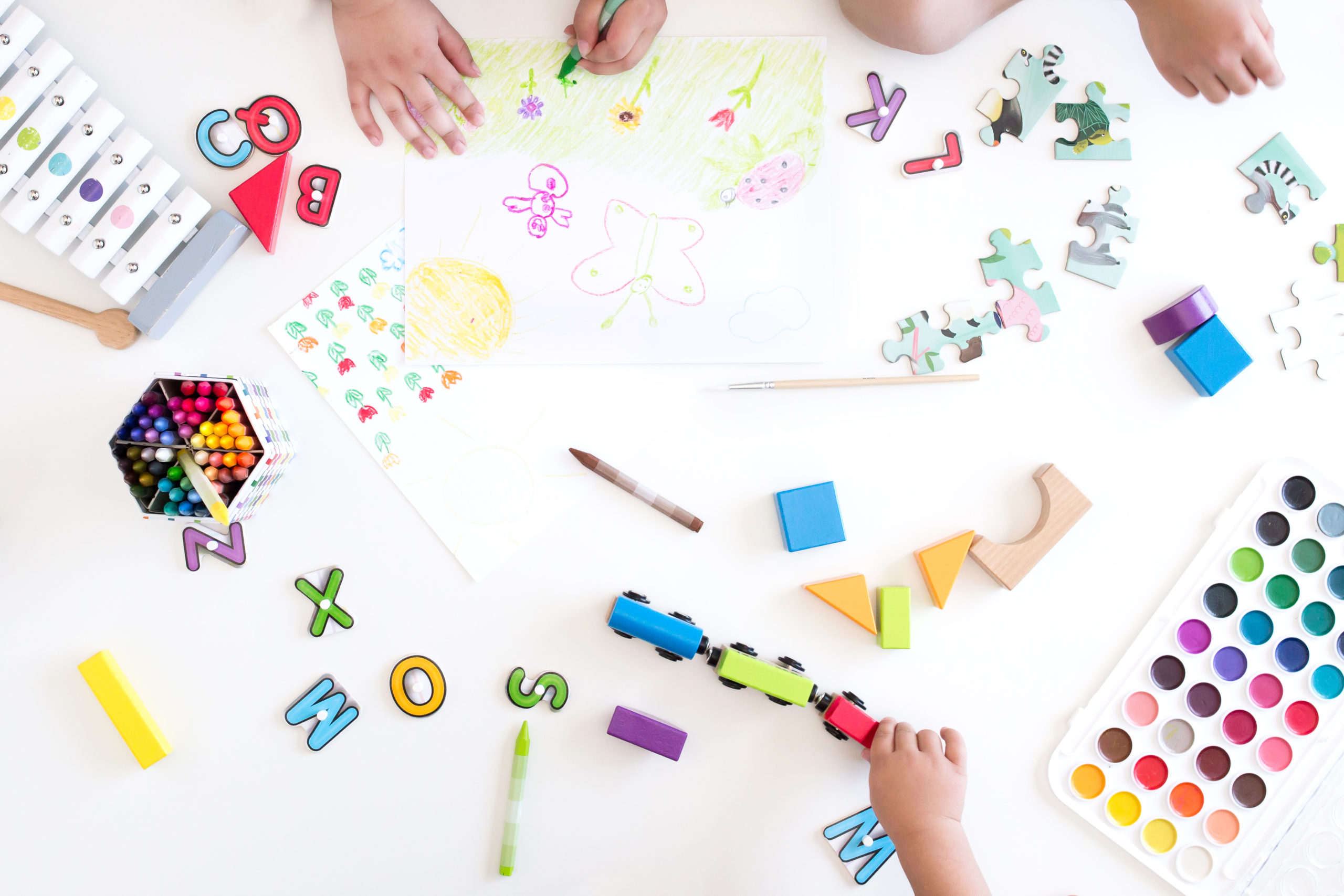On today’s post, I am chatting with Dr. Michele Borba, author of the book Thrivers: The Surprising Reasons Why Some Kids Struggle and Others Shine. She is an educational psychologist, former teacher and mom of three boys. Dr. Borba is passionate about helping kids become more resilient so they can be healthy, happy, successful and thrive. She is sharing tips on how to help our children thrive in today’s crazy world.
How Do Kids Shine?
Programs, tutors or apps, IQ or special DNA don’t help our kids thrive, but parents do! Thrivers are made not born. Scientific evidence from longitudinal studies show that 1/3 of kids who have suffered enormous adversity in their lives have managed to be healthy, competent and confident despite their tumultuous upbringing.
Noted researchers such as Emmy Werner, Norman Garmezy and Ann Masten found that parents played an integral role in teaching their children how to be resilient, perform better in the classroom and have better mental health.
In other words, parents shape their children into the person they want them to be.
What Can We Do as Parents?
Michele offers some tips from her book Thrivers on how to achieve this. She outlines 7 traits that help children be resilient, improve their mental health, and perform well in the classroom. Identify the key characteristics from the list below that you want to instill in your child. These should be the ones that matter to you and develop your own framework.
7 Traits That Help Children be More Resilient
- Self- confidence: the child focuses more on who they are and not what their parents want them to be
- Empathy: how the child relates to others in social interactions
- Self-control: the child will be able to manage their anxiety and stress and focus better
- Integrity: showing them what is expected of them and determining their values so that they can make better decisions
- Curiosity and Openness: open to new ideas and people
- Perseverance: never giving up and keep on going
- Optimism: Their hope for the world, the future and knowing they will be okay and will make it.
Can Resilience be Taught? How Can we Teach Them?
Scientific evidence suggests resilience can be taught. But parents must not get overwhelmed with all the information that’s out there, as this stress will be passed on to their children.
Use the survey tool from Thrivers to help you identify your child’s strengths. This tool will help you identify their existing strengths, the ones they need to improve on, as well as the ones that need work.
Focus on the existing strengths they have, as these will guide them and give them the most joy and confidence.
Example Trait: Strengthening Optimism
Let’s say you’re worried about their optimism in light of the dismal news reports we hear daily. Look for positive news stories in your newspapers and cut out those positive stories and paste them on index cards.
Lay these cards on your dining room table and use them for discussion points with your children and review all the good events that are happening in the world.
Other Activities
Engaging your children in conversation and activities and asking them about the following:
- What is one new thing you learned at school today?
- Who did you help at school today?
- What are you looking forward to the most for tomorrow?
- Think of two kind things you can do for someone today
- What are the two things you did and how did people respond?
- How do we want to be recalled by other people?
- What are the words you want other people to say about us?
Take a moment and pretend its 40 years from now and your child is grown up. What are the virtues or values or traits you want to see in your child when they’re grown up? Once you have figured this out, this will be your parenting plan and turn it into your mantra.
Find what works for you and your child(ren) and keep repeating it until it becomes your ritual.
How to Help Your Child When They Feel Stressed, Angry, or Scared
Especially in this pandemic and beyond, kids need a way to manage stress and a place to go. As a family you can do the following together:
- Create a calm down corner, some place in your home, involve your child(ren) in the process of identifying this space.
- Identify what are some of things you need at that place to help you debrief and relax. Don’t go buying new things – use what you already have that gives your kids security.
- Help everyone recognize their unique stress signs so that you can help them deal with stress. (e.g. hands getting tired, rapid breathing or your heart is racing)
- Come up with a calm down signal that everyone recognizes.
- Retreat to that calm down corner that you have created.
- Eventually move that corner into your child’s bedroom so that they have their own calm down space.
By going through this process, your child will know how to manage stress because you have been modeling it. Reading not only boosts achievement in vocabulary, but studies have shown that reading was used a method of escape for children to debrief and relax.
Empathy can also be boosted by allowing your child to read emotionally charged books where they can step into the character’s shoes and understand that character’s life and their traits.
Covid19 and How to Cope
Michele outlines the three P’s that will determine how a child is adversely affected by a stressful situation such as Covid-19: Proximity, Protective Factors and a Protective Person.
- Proximity: Being close to a very dismal event (E.g. loss of loved one, family business shut down)
- Protective factors: Can they cope? What are their coping strategies?
- Protective Person: Is there a protective person in the child’s life that refuses to give up on them and able to manage their own personal stress to help the child?
Remember a crisis amplifies a pre-existing problem, so if your child already had stress prior to the pandemic, chances are it will increase so it’s important to keep an eye on them. It’s never too late to teach them protective strategies as children with those buffers will endure better.
Another strategy to keep your optimism and self-control up is to find a mantra you can use as a family. Navy Seals use this mantra approach as well as a one-two breathing technique to manage stress. As soon as they feel the stress sign coming up, they take the one-two breath and say the mantra they have chosen prior to the stress.
Remember they already know their stress signs and once they have identified that sign, let them do deep breathing exercises while reciting this mantra. Practice this regularly so that it becomes second nature, until your voice becomes their voice.
Teaching your Children Deep Breathing
A strategy of teaching deep breathing to children is to put a feather on a desk or surface and tell them to breathe the feather, blow the feather real slowly without it bouncing off the surface. This is the best way they learn how to make slow deep breaths.
Put yourself back-to-back with your child and lock elbows with them and say now feel me. You do the deep breathing, he/she will feel your deep breathing and monitor it and model it with you.
Have your child lie on the ground with a teddy bear on their tummy. Then ask them to take a slow breath, tell them if they’re going too fast or too slow and how it makes their teddy bear feel. They will get the idea to slow down so as not to scare their teddy bear.
If your child turns around and tells you that you need to take a deep breath and figure out your stress signs, then you know that they have mastered what you have taught them about managing stress.
You can choose and use any five (5) strategies from Michele’s book that will work for you. Apply these strategies continuously for 21 days until this new habit is created. You’ll discover that the relationship is restored with your family, the meltdowns are reduced, and you realize that you are helping your child learn how to thrive.
To learn more about Michele, her work and her book Thrivers: The Surprising Reasons Why Some Kids Struggle and Others Shine, visit www.micheleborba.com. Her book is available on digital, audio and hardback versions on Amazon and Barnes and Noble and local bookstores.
I hope that you have found value in today’s post and leave feeling encouraged and inspired to go and take action. Follow me on Instagram, tag me at @thepurposegathering and let me know what your biggest takeaway was.
And as always mama, I am here rooting for you and you are not alone on this journey.

Resources
- Join our Facebook Community
- Find me on Instagram: @thepurposegathering
- Website: thepurposegathering.com
- Free Masterclass: Productivity with a Purpose
- Dr. Michele Borba: Instagram | Facebook | Website | Twitter | Youtube

+ show Comments
- Hide Comments
add a comment